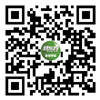[六级阅读]六级仔细阅读预测_吉林新东方
2016-06-17 17:52
来源:新东方
作者:新东方
A Tangled Web
The internet looks like an adman's dream. Counting how many times an advert on a bus shelter has been viewed is impossible; counting clicks on a blinking banner ad is a doddle (轻而易举的事). But knowing where each click came from, and how many people are clicking, is harder than it appears.
Firms dedicated to click-counting put code on websites that reports the times, origins and frequencies of visits, or get consumers to install it buried in browser plug-ins or mobile apps. These record web-users' digital calling-cards: the internet-protocol (IP) addresses of the devices they are using. But to assume that each IP address represents a single user in its country of registration is a wild oversimplification.
A new report published on November 4th takes a different approach. Global Web Index (GWI), a market-research firm with local partners in 32 countries, surveys 170,000 consumers a year and recently began to ask detailed questions about internet use. It puts North Korea and India in the top three forFacebook users. Similar Web, which does IP-based analysis, does not even put North Korea in the top ten.
One reason for the difference is that in many developing markets devices are widely shared. Conversely, more than three-quarters of respondents in the GWI report said they used more than one device. Another factor is the spread of virtual private networks (VPNs) and proxy servers (代理服务器), which make it possible to surf the web through a foreign server.
Once restricted to the tech-literate, these are now common and easy to use. Citizens in North Korea who want to vault the Great Firewall to use Facebook (banned in North Korea) can do so with a couple of clicks. Foreign fans of the BBC can use the same trick to watch its programmes via iPlayer, supposedly barred outside Britain. Since VPNs and proxy servers are clustered in countries with favourable rules, such as Sweden and the Netherlands, any count of visits to such sites will be skewed (出现偏差).
More broadly, knowing who is online, and where, would benefit government policymakers as well as advertisers. Other figures on technology use are available from the International Telecommunication Union (ITU), a UN agency. But there are gaps here, too. It collates (核对) surveys from national census bureaus around the world, but cannot insist that they all pose the same questions.
The ITU estimates that 4.3 billion people around the world are yet to get online, 90% of whom are in developing countries. But until data from surveys and clicks can be combined into a single picture, the map of internet usage will be little clearer than the viewership of bus-shelter ads.
1. In what way is counting clicks on a blinking banner ad a doddle?
A) Click-counting can be recorded by using codes.
B) Click-counting can be viewed by sight.
C) Click-counting can be summarized by admen.
D) Click-counting can be estimated by scientists.
2. According to the passage, why is it hard to figure out origins of click-counting?
A) Browser plug-ins with secret codes can hide customers' information.
B) Some mobile apps installed on a smartphone can't locate its user.
C) Each IP address does not necessarily represent one single user.
D) Knowing the origins and times of clicking is harder than it appears.
3. What might not be the reason for the difference of the researches conducted by Global Web Index and Similar Web?
A) Devices in many developing markets are widely shared.
B) Many people use more than one device when they surf the Internet.
C) Surfing the web through a foreign server is available.
D) The samples they choose are different from each other.
4. According to this passage, what would citizens in North Korea do if they want to use Facebook?
A) Find some tricks to breach the wall.
B) Use VPNs and proxy servers.
C) Ask Global Web Index for help.
D) Change their IP addresses.
5. What do we learn from the last paragraph?
A) Knowing where people get online would benefit government policymakers as well.
B) How people in developing countries access to the Internet is still unknown.
C) Counting clicks on blinking banners are easier than those of bus-shelter ads.
D) Data from surveys and clicks are not sufficient to form a clear map of internet usage.

吉林新东方官方微信:吉林新东方 (微信号:jlxdfcn)
最新考试资讯、大学四六级、考研课程,请扫一扫二维码,关注我们的官方微信!
相关推荐
版权及免责声明
①凡本网注明"稿件来源:新东方"的所有文字、图片和音视频稿件,版权均属新东方教育科技集团(含本网和新东方网) 所有,任何媒体、网站或个人未经本网协议授权不得转载、链接、转贴或以其他任何方式复制、发表。已经本网协议授权的媒体、网站,在下载使用时必须注明"稿件来源:新东方",违者本网将依法追究法律责任。
② 本网未注明"稿件来源:新东方"的文/图等稿件均为转载稿,本网转载仅基于传递更多信息之目的,并不意味着赞同转载稿的观点或证实其内容的真实性。如其他媒体、网站或个人从本网下载使用,必须保留本网注明的"稿件来源",并自负版权等法律责任。如擅自篡改为"稿件来源:新东方",本网将依法追究法律责任。
③ 如本网转载稿涉及版权等问题,请作者见稿后在两周内速来电与新东方网联系,电话:010-60908555。